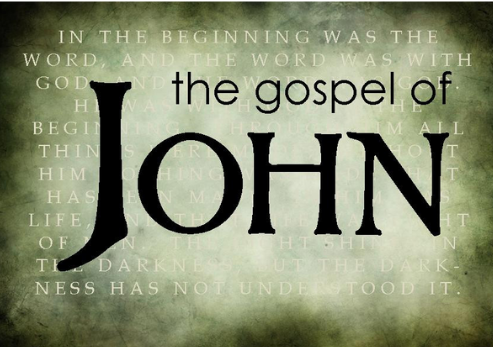| 31 "If I bear witness of Myself, My witness is not true. 32 There is another who bears witness of Me, and I know that the witness which He witnesses of Me is true. 33 You have sent to John, and he has borne witness to the truth. 34 Yet I do not receive testimony from man, but I say these things that you may be saved. 35 He was the burning and shining lamp, and you were willing for a time to rejoice in his light. 36 But I have a greater witness than John's; for the works which the Father has given Me to finish--the very works that I do--bear witness of Me, that the Father has sent Me. 37 And the Father Himself, who sent Me, has testified of Me. You have neither heard His voice at any time, nor seen His form. 38 But you do not have His word abiding in you, because whom He sent, Him you do not believe. 39 You search the Scriptures, for in them you think you have eternal life; and these are they which testify of Me. 40 But you are not willing to come to Me that you may have life. 41 I do not receive honor from men. 42 But I know you, that you do not have the love of God in you. 43 I have come in My Father's name, and you do not receive Me; if another comes in his own name, him you will receive. 44 How can you believe, who receive honor from one another, and do not seek the honor that comes from the only God? 45 Do not think that I shall accuse you to the Father; there is one who accuses you--Moses, in whom you trust. 46 For if you believed Moses, you would believe Me; for he wrote about Me. 47 But if you do not believe his writings, how will you believe My words?" Questions to Consider:
| In Jesus’ second line of defense He calls on three witnesses. He wants his critics to know that He is not a self-proclaimed Messiah. He does not want the issue of who He to only be based on His own testimony. Although we know that Jesus’ testimony is true, He wanted His detractors to hear the proof of who He was from other sources. The first witness that Jesus called on was the most popular prophet of Israel, at that time; one John the Baptist. The Gospel of John covered John the Baptist’s testimony concerning Jesus in John 1:15-34. When John the Baptist saw Jesus making His way to be baptized, he made the following proclamation: "Behold! The Lamb of God who takes away the sin of the world!” The second witness that Jesus calls on is God, the Father. There are some very specific actions that the Father sent Jesus to accomplish during His time of public ministry. Many of these actions, such as miracles, healings, and deliverance, could only be accomplished through the power of God. Jesus also points out the Father had given the Jewish nation Scriptures which gave testimony of Jesus. I realize that hindsight is 20/20. However, it is almost impossible to read some of the prophetic writings concerning the Messiah (writings such as Isaiah 53) and not make absolute connections with Jesus. How can a group of people be so blind as to miss the very thing that they are (in theory) looking for? Jesus tells His critics that if they did not receive Him, one who was sent by the Father, what made them think that they would receive another sent from the Father in the future? Jesus is calling on them to examine the evidence. (Think of all the evidence that declared that Jesus was the Christ) 1) The Testimony of John the Baptist. 2) The Signs and Wonders. 3) The Prophesies of the Prophets. 4) The Virgin Birth. 5) The Declaration of the Angels. 6) The Teaching of Jesus. 7) The Linage of Jesus… The evidence is conclusive. Finally, Jesus calls His last witness. Moses. Moses was the human author of the Jewish Law. Moses was the one voice that carried weight with the Pharisees, who worked at “separating” themselves from all the actions and objects that would cause them to be unclean. Jesus tells them plainly, “If you (actually) believed Moses, you would believe (in) Me; for he wrote about Me.” |
|
0 Comments
|
RJ DugoneLead Teaching Elder: Archives
July 2020
Categories
All
|


 RSS Feed
RSS Feed
